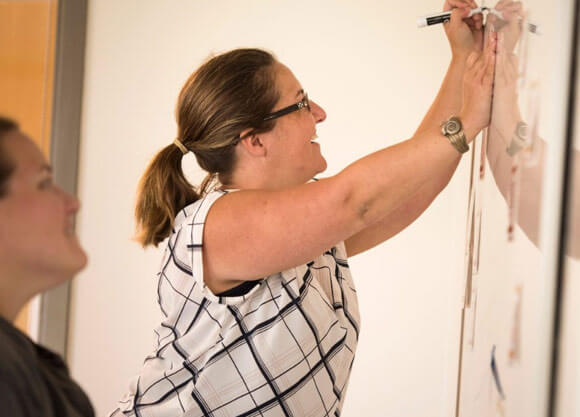
Offering science teachers a chance to SING
November 21, 2016

November 21, 2016

Now in its second year, Project SING (Science Induction for the Next Generation) is designed to bring the Next Generation Science Standards into focus for beginning teachers, mentors and administrators and also to promote the retention of new teachers in the field. The program features content-specific professional development with a focus on these science standards, which Connecticut adopted in November 2015. These standards represent a multi-state effort to create new education standards that are rich in content and practice and arranged in a coherent manner across disciplines and grades to ensure all students receive an internationally benchmarked science education.
"With the adoption of the NGSS in Connecticut, we have taken a step forward to help our students develop science literacy and to become global citizens," said Cindy Kern, a professional development leader and visiting assistant professor in the School of Education.
She also serves as director of the Bristol-Myers Squibb Center for Science Teaching and Learning at Quinnipiac. "We now need to support the science teachers in the implementation of NGSS-aligned instructional practices. We are very excited to have an opportunity to help teachers and positively influence the science experience of Connecticut students."
Project SING brings together teams of beginning teachers, mentors and administrators from 10 Connecticut districts, including Bridgeport, Capitol Region Education Council, East Haven, Hamden, Meriden, New Haven, North Haven, Norwich, Notre Dame High School and Wallingford, for professional development designed to:
The Bristol-Myers Squibb Center for Science Teaching and Learning is a network of scientists, engineers and educators collaborating to advance the art of STEM education from kindergarten to the university level.
Quinnipiac Today is your source for what's happening throughout #BobcatNation. Sign up for our weekly email newsletter to be among the first to know about news, events and members of our Bobcat family who are making a positive difference in our world.
Sign Up Now